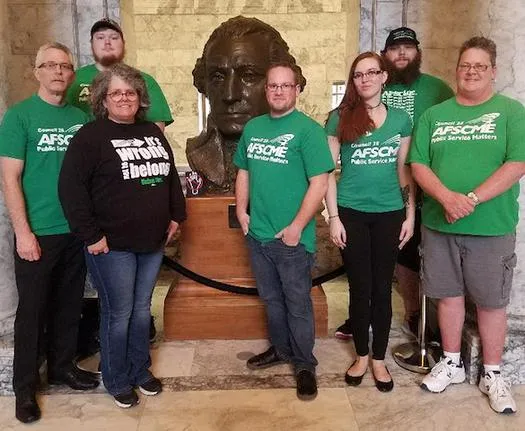Public-employee unions prepare for Supreme Court case

SEATTLE – Public employee union members in Washington state will be closely watching the U.S. Supreme Court case Janus v. AFSCME on Monday.
Greg Devereux, executive director of the Washington Federation of State Employees (WFSE), says if justices side with Illinois worker Mark Janus, it would undermine a 40-year-old court decision – and labor unions in general.
Janus is challenging a 1977 case that created a two-tier system for union membership, with full members and non-members who pay what are known as "fair-share" fees for representation and collective bargaining.
Devereux says if Janus wins, public unions could work on behalf of people who aren't paying for that representation.
"Even the ACLU has filed an amicus brief against this, saying in effect, it's reverse compelled association,” says Devereux, “because now, members will be paying for non-members, under this scheme."
Supporters of Janus say he shouldn't have to pay fair-share fees on First Amendment grounds.
This Saturday, unions across the country will hold what they're calling a "Working People's Day of Action." WFSE, which is part of the American Federation of State, County and Municipal Employees (AFSCME), and Service Employees International Union (SEIU) also are planning an event on Monday at Harborview Medical Center in Seattle.
Revenue to public employee unions could be take a hit if the courts rule against AFSCME. In 28 so-called "right to work" states, people who are covered under public-employee contracts don't have to pay the fair-share fee for representation.
This case would in essence extend that policy to public employees in the other 22 states – including Washington – which collectively represent about five million workers. Supporters of Janus have equated collective bargaining with lobbying, but Devereux insists that is a false comparison.
"In terms of safety, working on workload, determining health care benefits for individuals,” he says, “there are a tremendous number of issues in our union contracts that make a huge difference in people's lives at the workplace."
In a similar 2016 case, justices ended in a 4-to-4 deadlock over the fate of fair-share fees.
